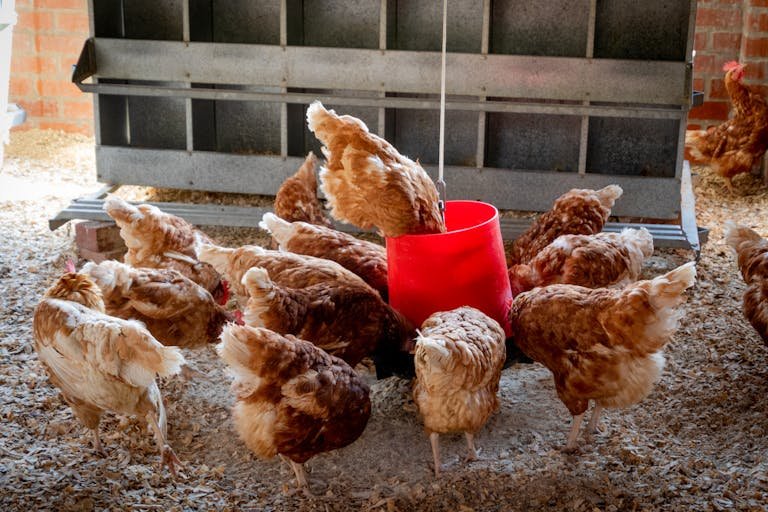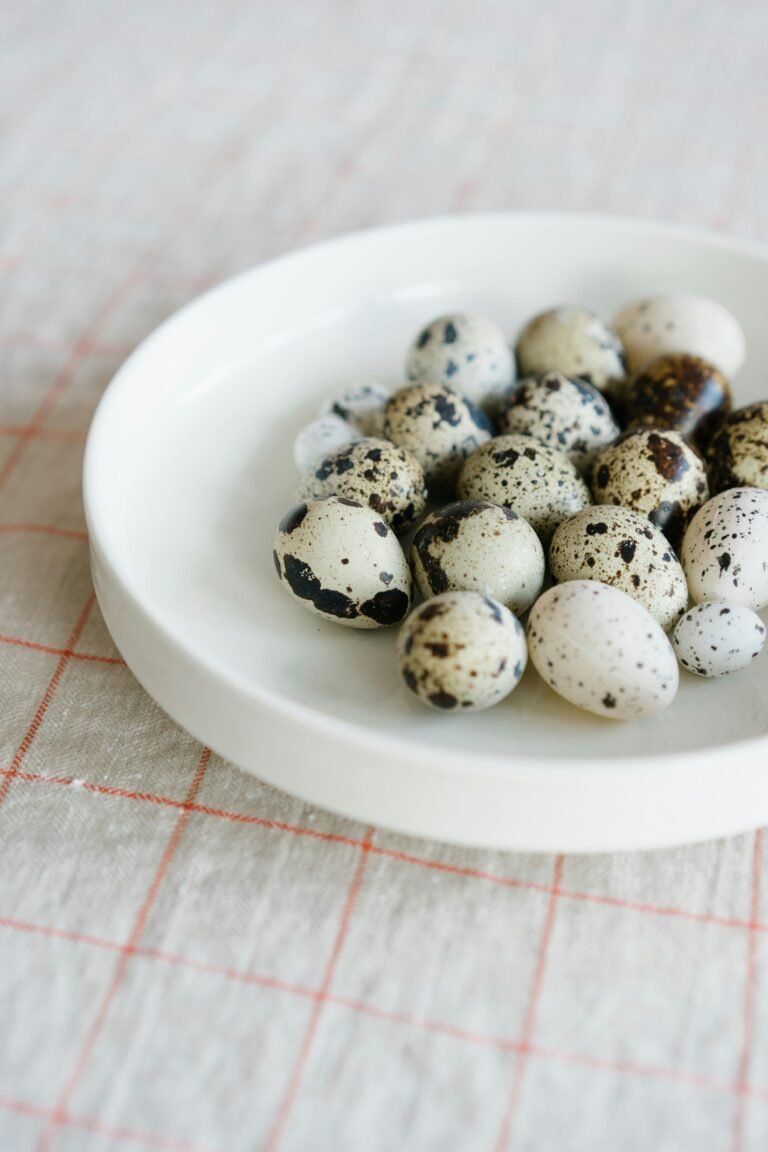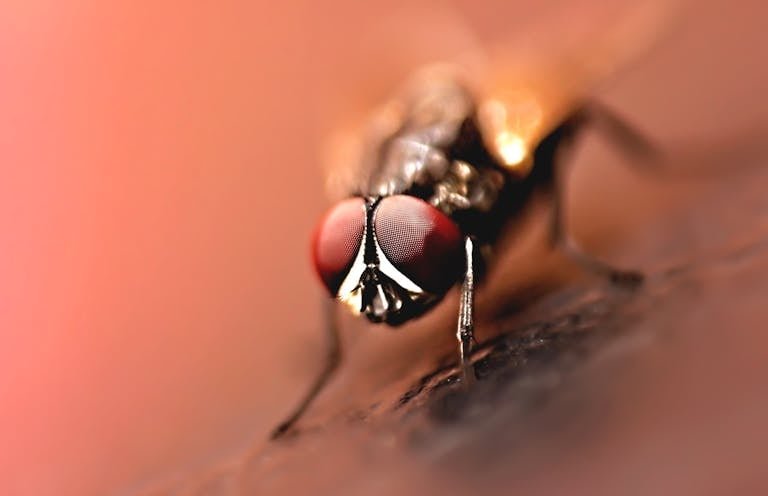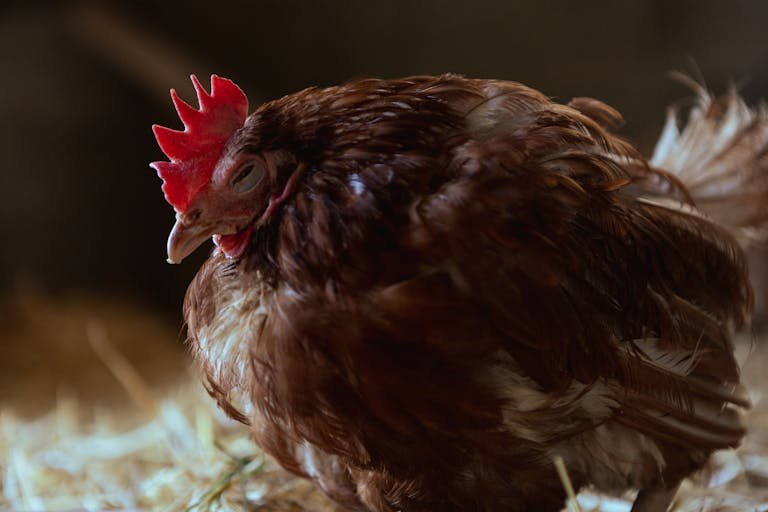Hawks Hunting Your Hens? 3 Foolproof Tips to Keep Them Safe
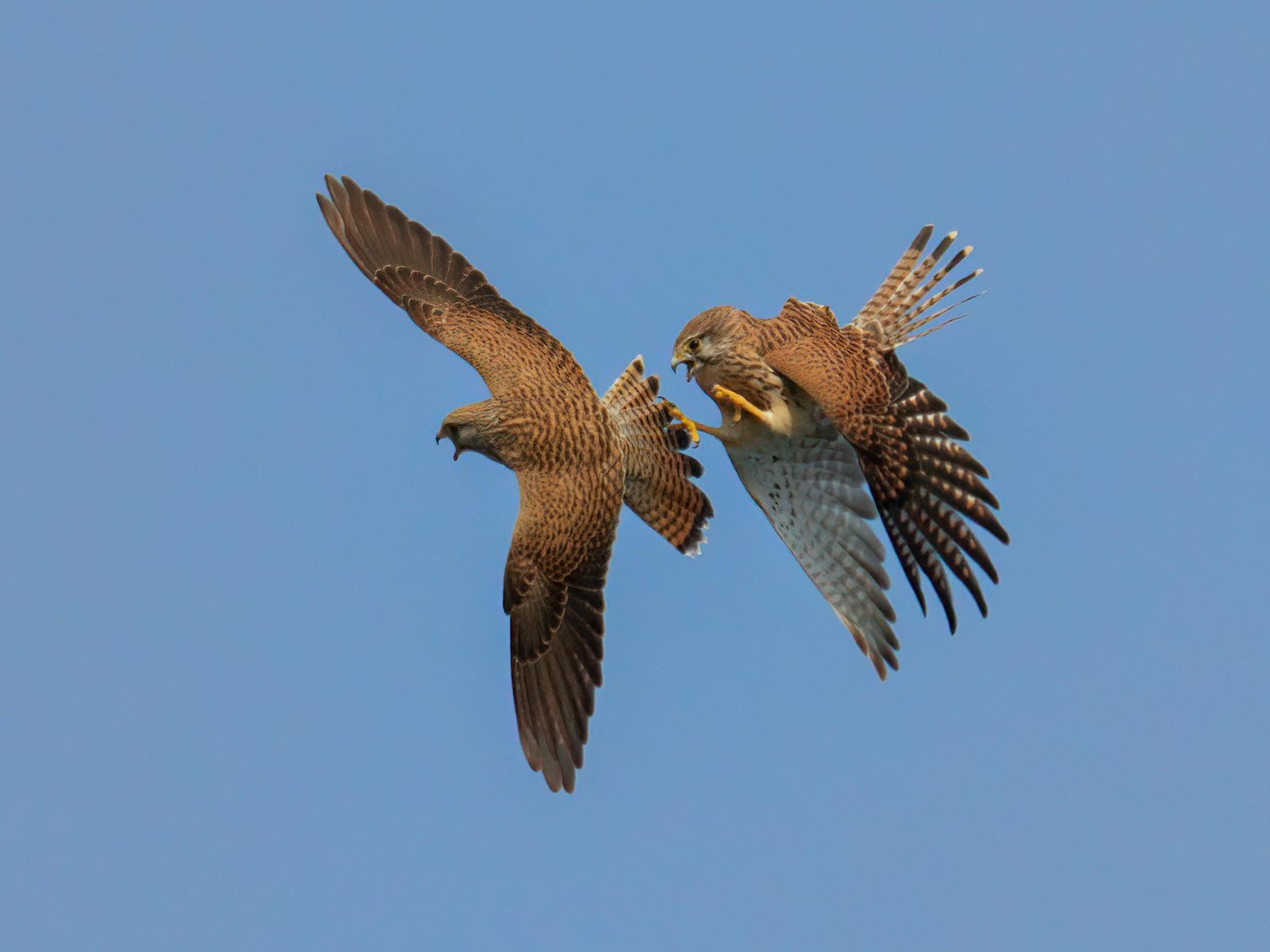
Hawks are one of the most dangerous predators for backyard chickens. They can strike swiftly from the sky, causing harm to your flock before you even have time to react. When raising chickens, protecting them from aerial threats like hawks is crucial for their survival and your peace of mind. As a chicken owner, I’ve learned that hawk attacks can be prevented using a combination of physical barriers, visual deterrents, and behavioral strategies. In this guide, I will outline how you can protect your chickens from hawks and create a safe environment for them.
Physical Barriers
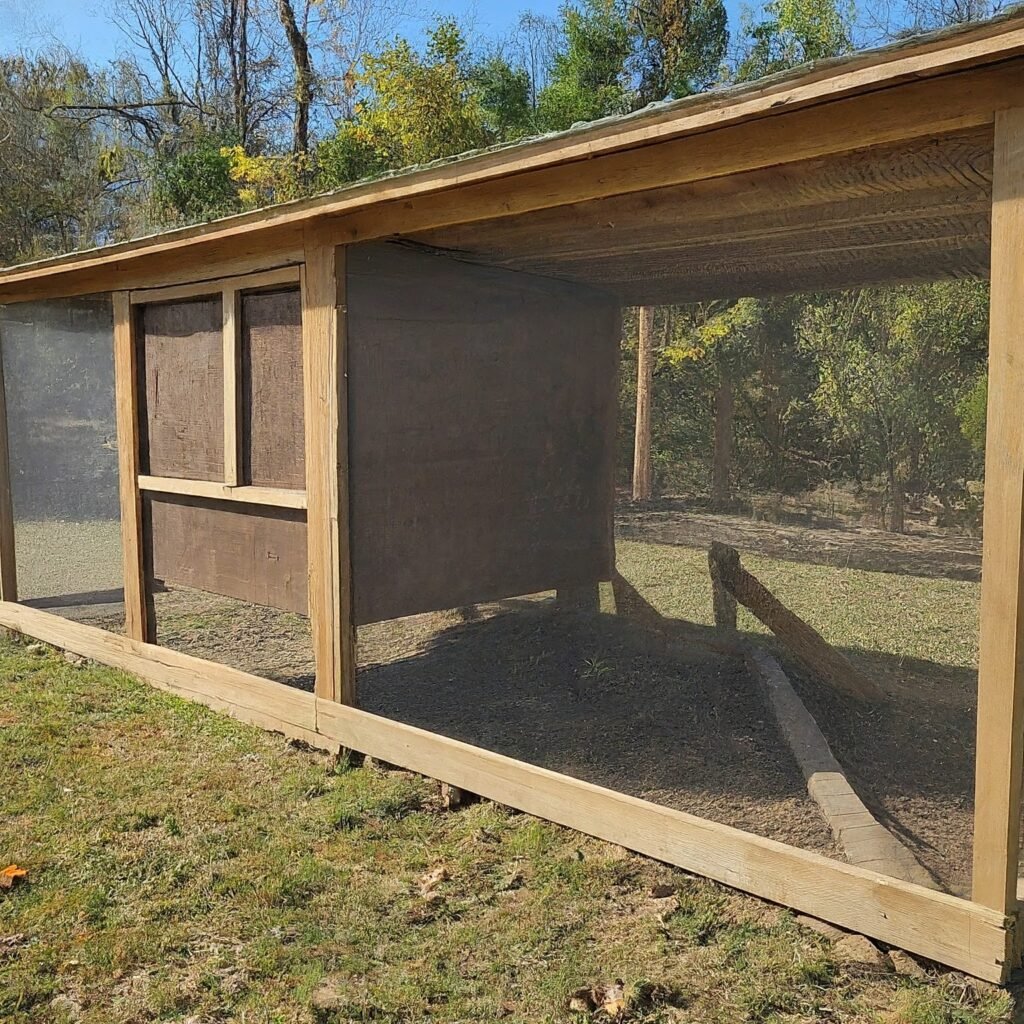
One of the most reliable ways to protect your chickens from hawks is by creating strong physical barriers. Hawks are powerful flyers, but they can be kept at bay with the right protective measures.
1. Chicken Wire Fencing
Surround your chicken coop with fencing
- Use chicken wire or hardware cloth fencing that is at least six feet tall. This height helps prevent hawks from swooping down easily into the area.
- Ensure the fence has no gaps or weak spots that a hawk could use to enter.
- Install the fence deep into the ground or add a skirting at the base to deter any predators that may try to dig under it.
Why chicken wire works
Hawks hunt by diving swiftly toward their prey. A tall fence disrupts their approach and limits their ability to maneuver near your chickens. If the coop is securely enclosed, hawks will be less likely to attempt an attack.
2. Netting
Cover your chicken coop with protective netting
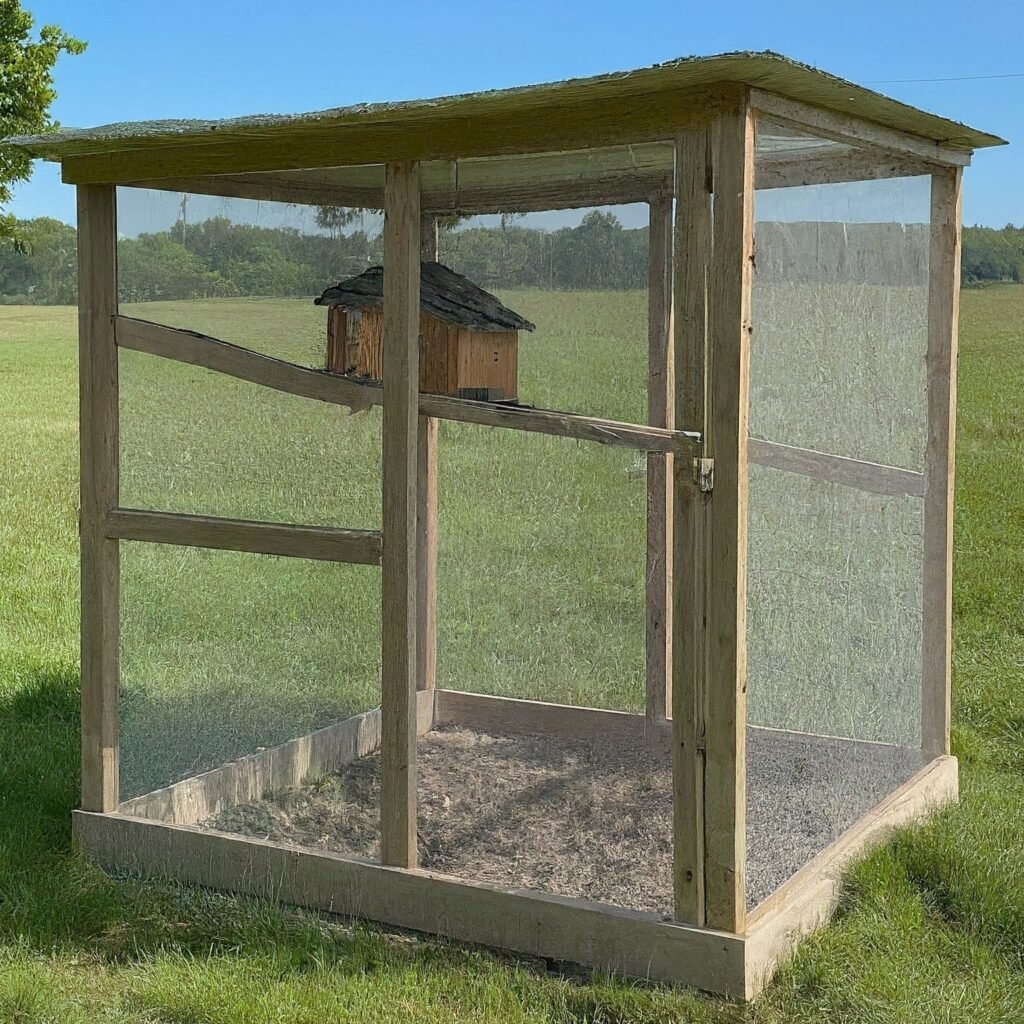
- Use fine mesh or poultry netting with small enough holes to block hawks from entering.
- Ensure the netting covers the entire area, including over the top of the coop and run. Leave no gaps that a hawk could exploit.
- Consider using a more durable netting material like nylon or plastic to withstand different weather conditions.
How Netting Protects Your Flock
Hawks need a clear, open space to swoop down and grab their prey. By covering your coop with netting, you remove their access point, making it impossible for them to reach your chickens.
3. Hawk Baffles
Place hawk baffles around the coop
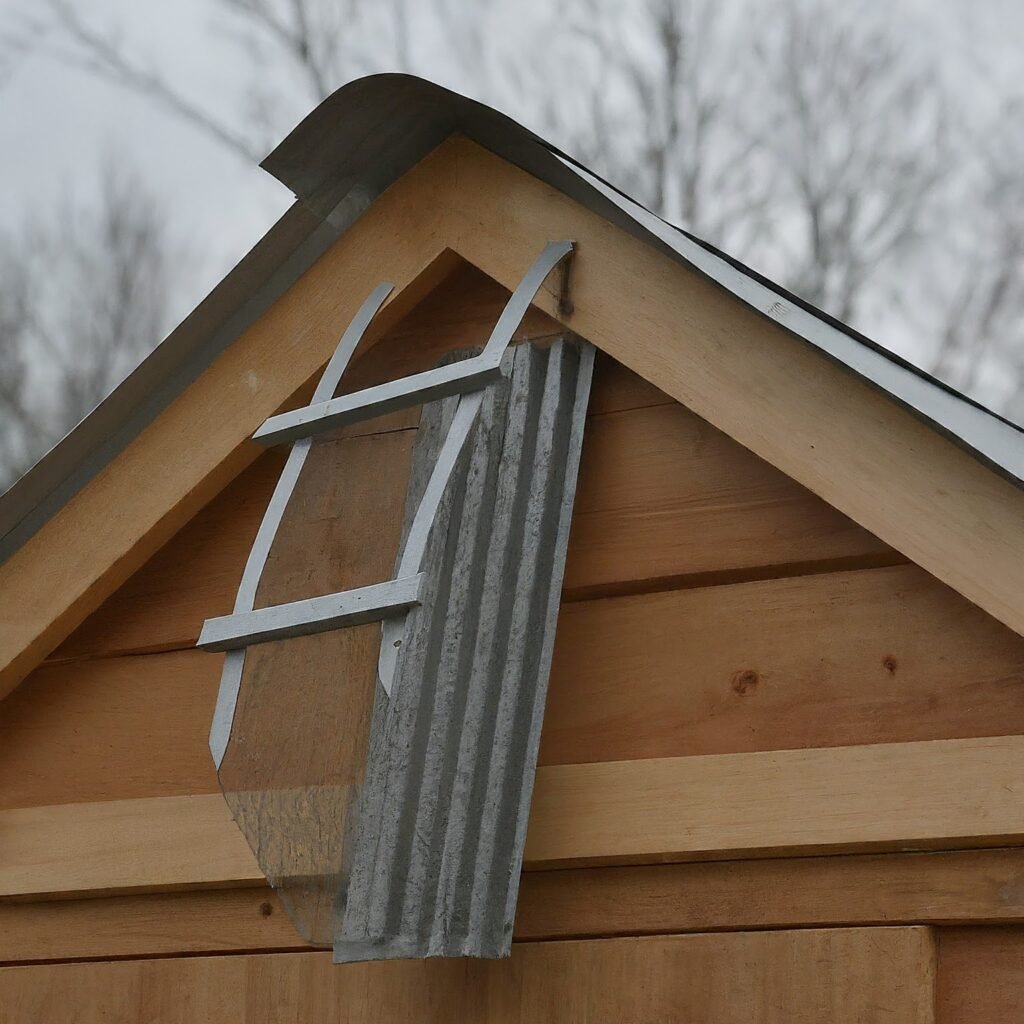
- Hawk baffles are reflective discs, typically made of metal or plastic, that create light flashes when sunlight hits them.
- Install baffles on the roof of the coop or high points around the chicken yard.
- Make sure the baffles are spaced apart and positioned where the sun can reflect off of them throughout the day.
Why baffles work
The sudden flashes of light from the baffles startle hawks and make them wary of approaching. Hawks prefer to hunt in areas where they feel secure, and the unpredictable reflections from the baffles can scare them away.
Read Also: How to Treat Fowl Pox in Chickens Naturally
Visual Deterrents
Visual deterrents play an important role in keeping hawks away from your property. Hawks rely heavily on their vision while hunting, so you can use visual distractions and illusions to make them think twice before attacking.
1. Hawk Decoys
Use decoys to trick hawks
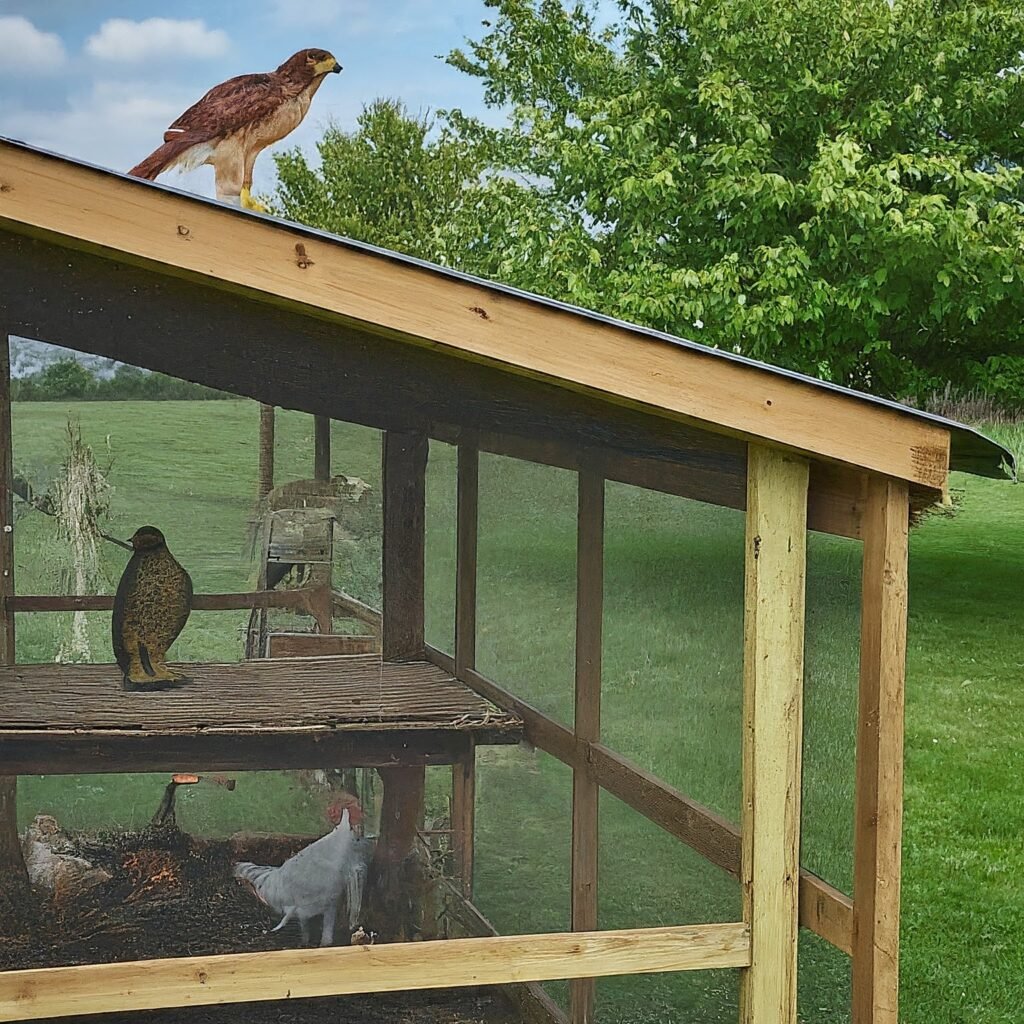
- Place a realistic hawk or owl decoy near your chicken coop.
- Move the decoy periodically to keep hawks from getting accustomed to its presence.
- Position multiple decoys if possible, especially in areas hawks frequently visit.
How decoys help
Hawks are territorial animals, and if they see what they perceive as another hawk or a larger bird of prey near your coop, they’re less likely to approach. By simulating the presence of another predator, you can create a natural deterrent.
2. Shiny Objects
Hang shiny objects around the coop
- Use items like old CDs, reflective tape, or strips of aluminum foil.
- Hang these objects in spots where they will catch sunlight and move with the wind.
- The reflection and constant motion will help keep hawks away.
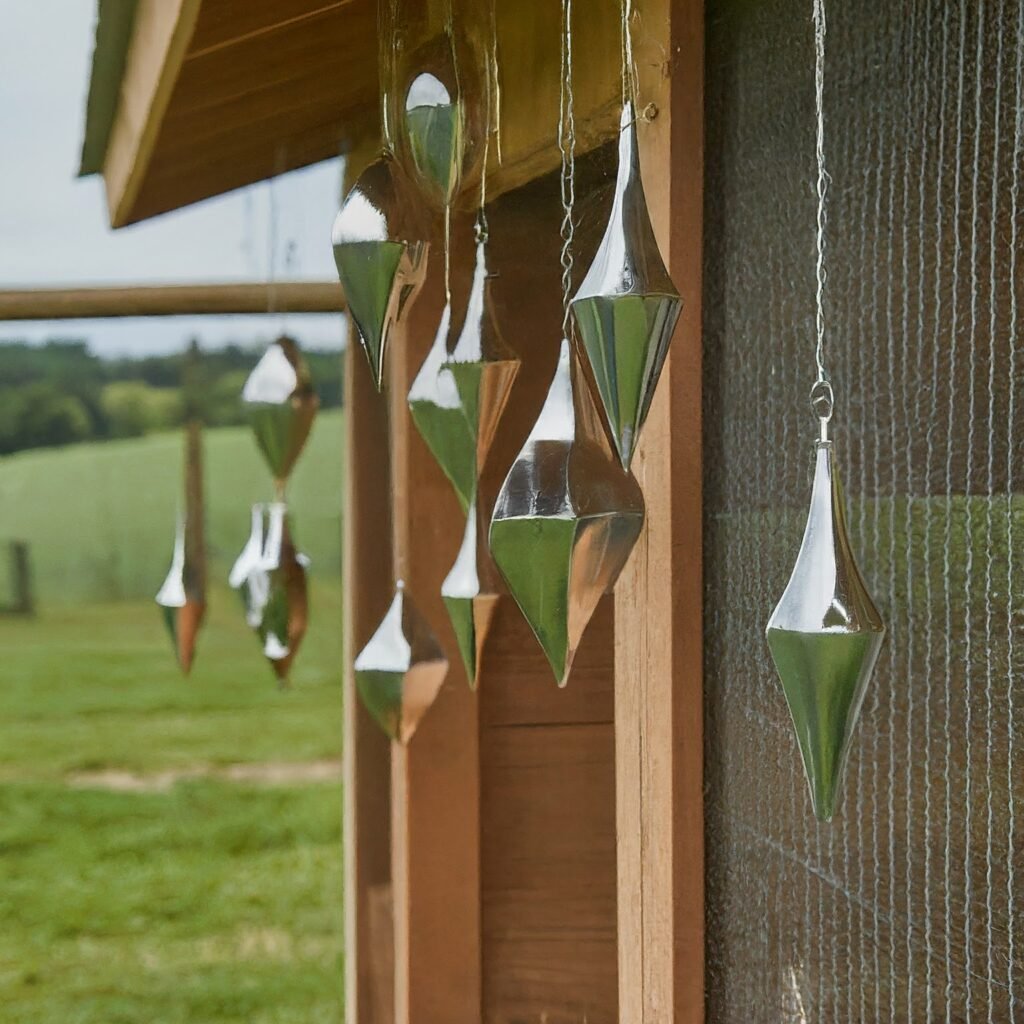
Why this works
Shiny, moving objects confuse hawks and disrupt their hunting strategies. The light reflections make it difficult for them to focus on the chickens, creating an unfriendly environment for hunting.
3. Wind Chimes
Add wind chimes for sound deterrence
- Hang wind chimes near the coop or chicken yard entrance.
- Opt for wind chimes that are metallic or have reflective surfaces to combine sound with visual deterrence.
- Ensure they are placed in areas with enough wind to keep them active.
Why wind chimes work
The sound and movement from wind chimes create an unpredictable environment that hawks dislike. Their constant noise makes it hard for hawks to concentrate on hunting, making your coop a less desirable target.
Behavioral Strategies
While physical barriers and visual deterrents are essential, you also need to implement behavioral strategies that empower your chickens to protect themselves. Hawks often take advantage of open spaces and vulnerable birds, so keeping your flock alert and in safe zones is key.
1. Provide Shelter
Create hiding places for your chickens
- Ensure there are bushes, shrubs, or small shelters in the chicken yard where chickens can quickly hide if they sense danger.
- A wooden or plastic shelter near the coop can act as a quick escape spot for them when they see a hawk overhead.
Why shelter is important
Chickens can naturally sense predators, and if they see a hawk flying above, they will instinctively run for cover. Giving them places to hide ensures they can escape a hawk’s line of sight, reducing the risk of an attack.
2. Keep Chickens Confined
Limit their exposure during peak hawk activity times
- Confine your chickens to a secure coop or enclosed run during the early morning and late afternoon, when hawks are most active.
- Make sure the area they are confined to is well-fortified with fencing, netting, or other protective measures.
How this helps
Hawks are opportunistic hunters, and they prefer to attack when chickens are out in the open. By keeping your chickens confined during high-risk times, you reduce the chance of a hawk spotting and attacking them.
3. Monitor Your Flock
Keep a close eye on your chickens
- Check on your flock regularly throughout the day, especially during times when hawks are most active.
- Install cameras or other monitoring systems in your yard to detect any potential hawk activity.
- If you spot a hawk nearby, move the chickens into the coop until the threat passes.
Why monitoring matters
Being vigilant allows you to act quickly if a hawk appears. By frequently checking on your chickens, you can intervene before a hawk makes its move, helping to keep your flock safe.
Additional Tips
Beyond the core strategies mentioned above, there are a few additional measures that can enhance the safety of your chickens from hawks. These extra steps can further reduce the chances of an attack and help maintain a secure environment for your flock.
1. Remove Food and Water Sources
Keep food and water inside the coop
- Avoid leaving food and water outside, as this attracts small animals like rodents or songbirds, which are prey for hawks.
- Ensure all feeding happens inside the coop or in covered areas.
How this helps
By keeping food and water sources hidden, you reduce the chances of hawks being drawn to your property. Hawks might initially come for smaller prey but turn their attention to your chickens once they’re nearby.
2. Consider a Guard Dog or Guard Animal
Use animals to deter hawks
- A guard dog trained to stay near the chickens can scare off hawks. Breeds like Great Pyrenees or Anatolian Shepherds are known for protecting livestock.
- Other animals, such as geese or donkeys, can also help guard your chickens from hawks by being naturally aggressive toward predators.
Why guard animals work
Hawks are less likely to approach areas where there is a perceived threat from larger animals. Having a guard dog or other animal that watches over the flock can be an effective way to keep hawks away.
3. Hawk Deterrent Spray
Apply commercial hawk deterrent sprays
- Some sprays are designed to repel birds of prey by emitting a smell that hawks find unpleasant.
- Use the spray around the perimeter of your coop and chicken yard.
- Follow the product instructions carefully to ensure proper application and effectiveness.
Why sprays are useful
Hawk deterrent sprays create an additional layer of protection by using scent to discourage hawks from entering your property. While not a standalone solution, they can enhance your overall defense strategy.
Read Also: Silver-Laced Polish: The Stunning Breed You Need
Final Words
In conclusion, protecting your chickens from hawks requires a combination of physical barriers, visual deterrents, and proactive strategies. By implementing these techniques, you can significantly reduce the risk of hawk attacks and create a safer environment for your flock. Always remain vigilant, adjust your strategies as needed, and your chickens will be well-guarded from these aerial predators.


